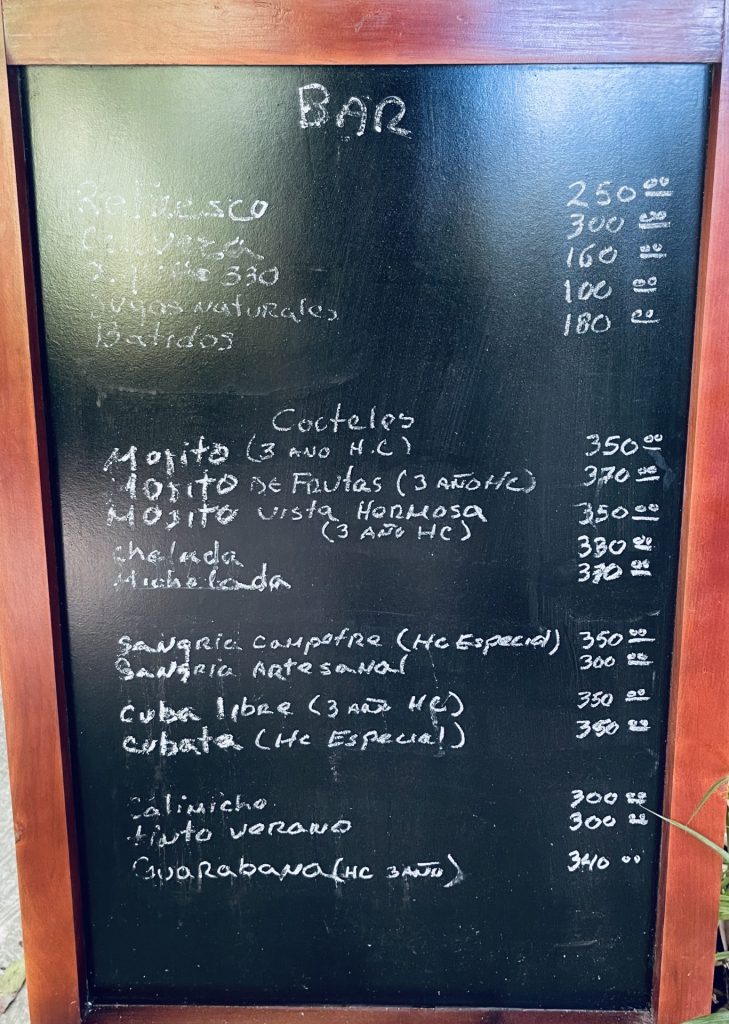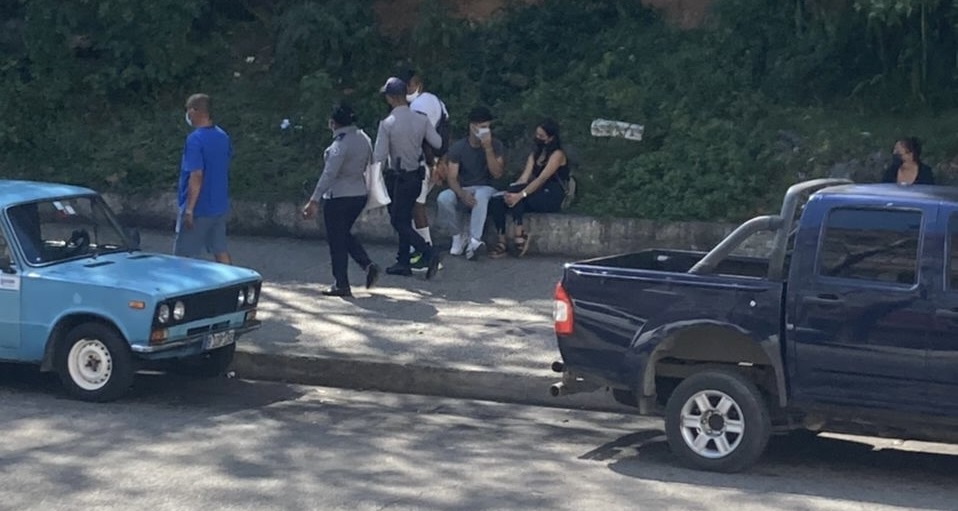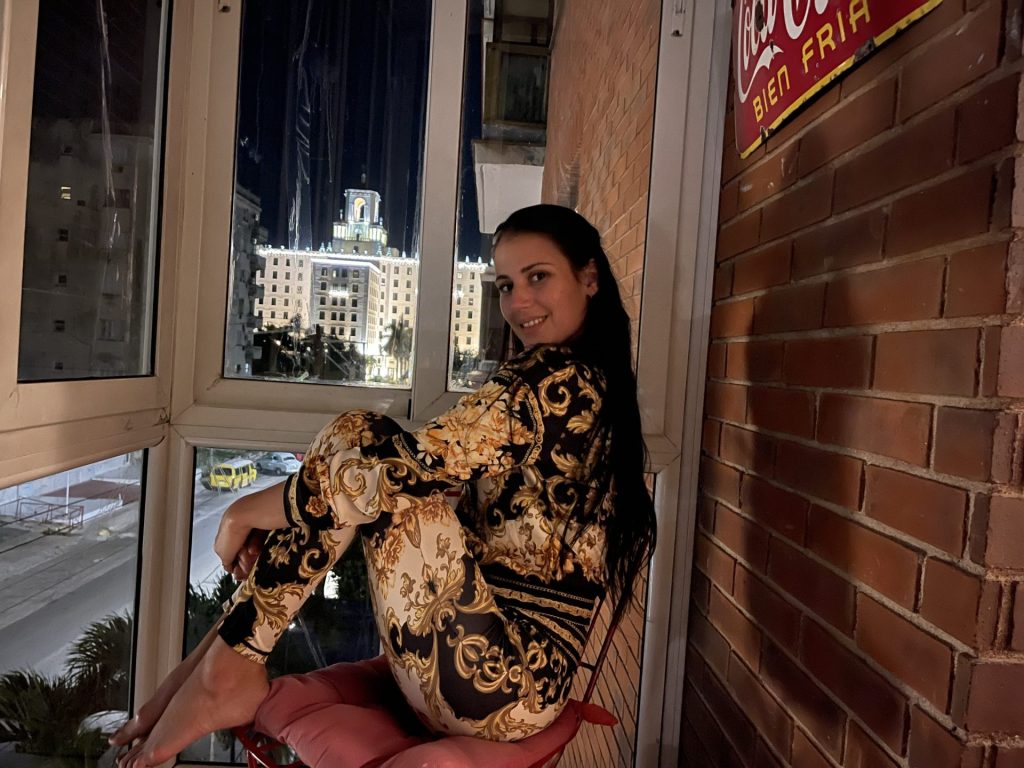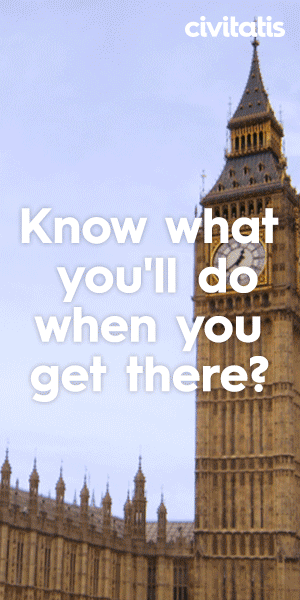In this article, I cover the most common tourist scams, that you will be likely to encounter while visiting Cuba. The Cuban tourist scams covered below are not just common in Havana, they’re across the entire island and you will encounter at least one of them during your vacation.
Cuba is, to put it mildly, an island awash with tourist scams. But before getting into what the scams are and how to avoid them, or how to get yourself out of these scams if you stumble into one, let’s cover the basics.
The main tourist scams in Cuba
Is There Crime In Cuba?
Yes, Cuba has crime. Cuba is not crime free. And Havana, like any major city, has more than its fair share of the crime that is present in Cuba. In Havana, you will encounter scammers, criminals and drug dealers on a daily basis. More often than not, they’ll be standing right outside your hotel waiting for tourists.
Cuban statistics are notoriously sketchy and the crime rates published by the Cuban government are not reliable. With that said, crime involving tourists would more often fall into the category of ‘petty crime’, as there are still harsh penalties for crimes involving tourists.
Is There Violent Crime In Cuba?
Yes, Cuba has violent crime. On my second night staying in Old Havana by Parque Cristo, I walked outside to get internet. As I stepped out onto my casa particulars front step, something shiny whizzed past my face.
It was a large bladed kitchen knife and there was what could best be described as a gang battle in progress, with 6-8 individuals wielding everything from machetes and kitchen knives, to broken bottles and bricks. Right on my Airbnb’s doorstep.
In Cuba, there are murders involving tourists. But these are most often relationship breakdowns between a Cuban and their foreign partner. They’re not crimes involving random tourists.
In the extremely rare event that a tourist is caught up in violent crime, you can expect it to get relatively little, if any, media coverage. Canadians murdered in Varadero for instance, get little coverage in the USA and none in Australia.
Thankfully, as an unnamed diplomat mentioned as we sped down the highway, through roadblocks in a diplomatic vehicle on our way to Varadero for a swim, most tourists who die in Cuba do so from a little too much excitement or too many penis pills.
In my case, I found out that the casa particular I’d booked on Airbnb was in a crime riddled neighborhood that smelt like an open sewer. So I cancelled the booking the next day. And I moved over to the suburb of Vedado in Havana.
Is Cuba Safe?
Yes, Cuba is safe when compared to other countries in its region and the broader Americas. You really don’t need to worry about personal safety when traveling to Cuba. You should, however, take standard precautions such as having travel insurance, not taking flashy jewelry or high value items and you should always act with common sense.
Don’t leave expensive items or anything you wouldn’t want to be stolen laying around unattended, and you’ll be fine. Most of the crime tourists will be likely to experience in Cuba, will be petty, opportunistic thefts and scams.
What Are The Safest Suburbs In Havana For Tourists?
Vedado, Miramar, Playa and the suburbs of Havana that are outside of the centre are the safest for tourists and foreigners more broadly. Yet, more of a consideration for you, should be the level of comfort, noise and smell.
Those pictures you might be looking at on booking sites probably show lovely rooms and apartment rentals in Centro, with convenient access to all the Old Town tourist attractions. What they don’t convey, is the noise and smell you’ll encounter.
Without the invention of some sort of smell-o-vision and a video walk through of the property, you won’t know the whole suburb smells like an open sewer and is noisy 24/7.
You will also encounter comparatively less scammers, thieves and criminals in places like Vedado and the other suburbs that are outside of central Havana. From the window of my airbnb in Centro, I could watch grown adults poop on the street.
From the balcony of my Airbnb casa particular in Vedado, with my morning coffee, I could watch all the old cars roll past the Capri Hotel on their way down the street to Hotel Nacional. I know which one I’d choose again.
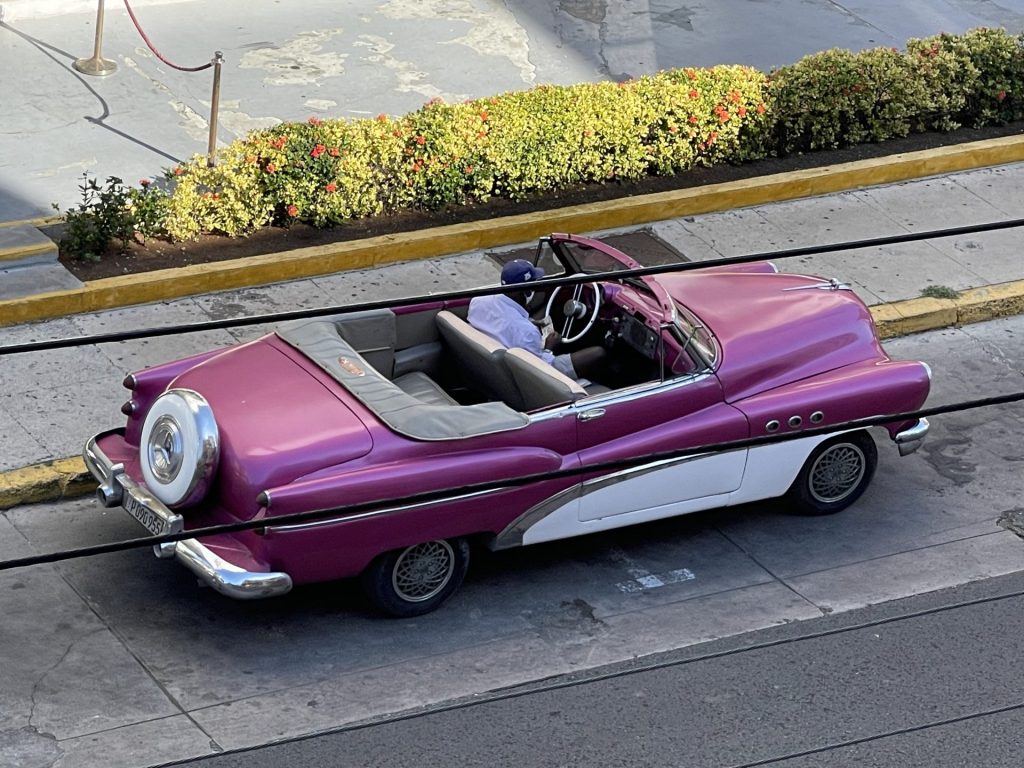
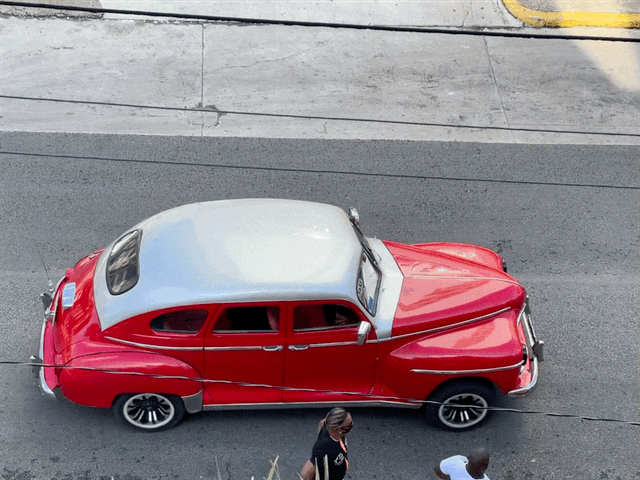
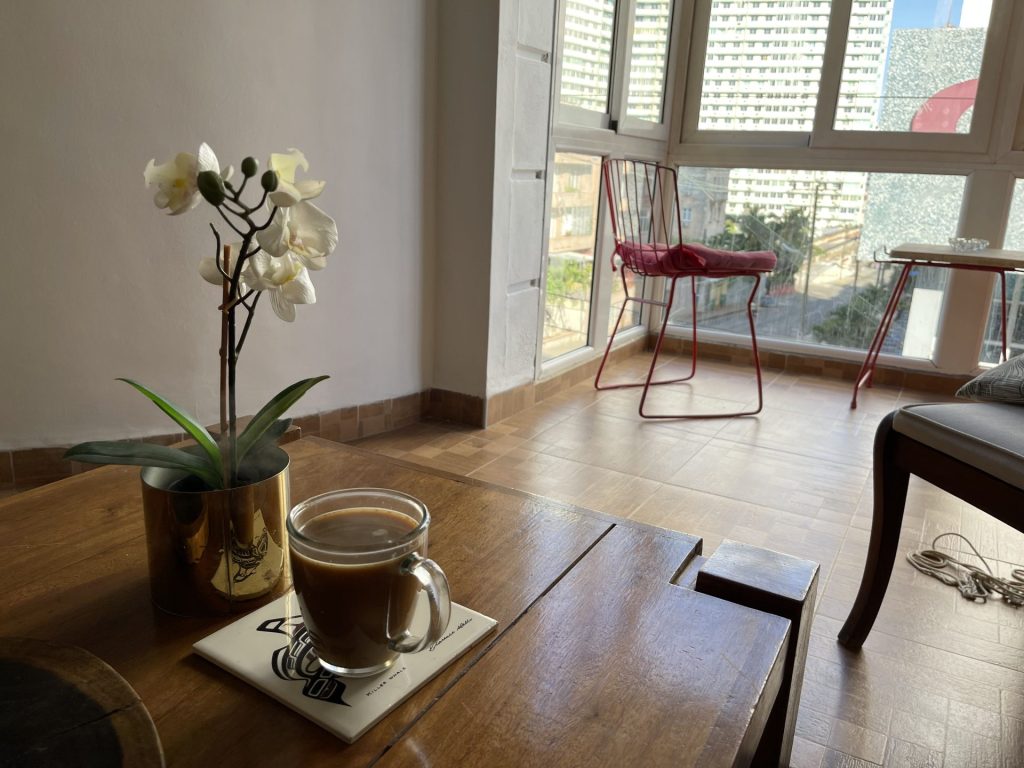
The Main Scams You Will Encounter In Cuba
Now, the below scams will rise and fall in popularity among Cuban touts and scammers. All depends on what scams they’ve been having luck with in the recent past, as to which ones are the most prolific on any given day.
Yet some, like the fake cigar and rum scams, currency exchange scams and bar or restaurant scams are perennial favorites. They never seem to go out of fashion and you will encounter them many times on every single day, that you’re in Cuba.
The main trick to avoiding being scammed in Cuba as a tourist, is to always keep 3 basic rules in mind. And those rules are:
- If it sounds too good to be true, it probably is;
- If you don’t know the person who is offering to help you, decline their offer;
- If someone mentions calling the police, call their bluff and insist that they do call the police.
If you follow those 3 simple rules above, you won’t be an easy target for those people seeking to scam unsuspecting tourists. Particularly the third rule, as the scammers and street touts fear the police. And they’ll be the ones getting arrested, if a tourist is involved. The police won’t choose to act against a tourist.
Now, the most common tourist scams you’ll encounter in Cuba, are:
- Fake cigars
- Fake rum
- Fake tickets and tour bookings
- Restaurant and bar scams
- Short change scams
- Currency and exchange scams
- Dating scams (Jinetera & Jinetero)
- Support for the Cuban people scams
- Investment scams
- Baby needs scam
- Google Maps scams
- Entry fee scams
- Police bribe scams
Fake Cigars In Cuba
This is one of the most common and least malicious, of all the scams operating in Cuba. Most tourists think of cigars, rum and old cars when they think of Cuba. But most tourists wouldn’t be able to tell one cigar from another. Let alone a real cigar from a counterfeit item.
If somebody walks up to you on the street and offers to sell you a cigar, it’s a fake. The only place to buy genuine, brand name cigars, is in stores. But not just any stores, official government owned outlets.
Street scammers will often tell tourists that today is their lucky day. Because it’s ‘the national day of the cigar and everything is half price’. If they manage to find a sucker that’s interested, they will walk them to the ‘store’ and rip them off with fake cigars sold at ridiculously high prices.
The alternate and more malicious version of this scam is to sit in the ‘store’ and have a cigar with the customer (i.e. the sucker). And maybe a rum. Either as a ‘free sample’ or ‘don’t worry friend it’s cheap.’ Because ‘today is the national day of the cigar.’ Then the bill will come due and the sucker will owe upwards of $100USD per fake cigar and any drinks for them and their newfound ‘friend’.
Cuba does have a ‘national cigar day’ and it’s on February 27. But once you’ve heard ‘today is the national day of the cigar’ five times or more per day, every day for months on end, you’ll probably do what I did. Which was to start finishing the scammers sentences and politely suggest that they go somewhere unpleasant.
Fake Rum In Cuba
Fake rum will be sold in the same fashion and usually side-by-side with fake cigars. There will be some sort of ‘national rum day’ or some other limited time event. This is a standard sales tactic. It gives a reason for why you should buy it then and there, and not another day or time.
If it’s a random person who has approached you on the street, it’s a scam. If it sounds too good to be true, it’s a scam. It there’s something coming for free or near free in Cuba, it’s definitely a scam. Nothing is free in Cuba and Cuban’s are nice. But not so nice as to walk up and want to help a random tourist.
Also, if you buy a bottle of liquor somewhere and it tastes like moonshine, it probably is. So tip it out and get a bottle from a different shop or have one delivered on Mandao.
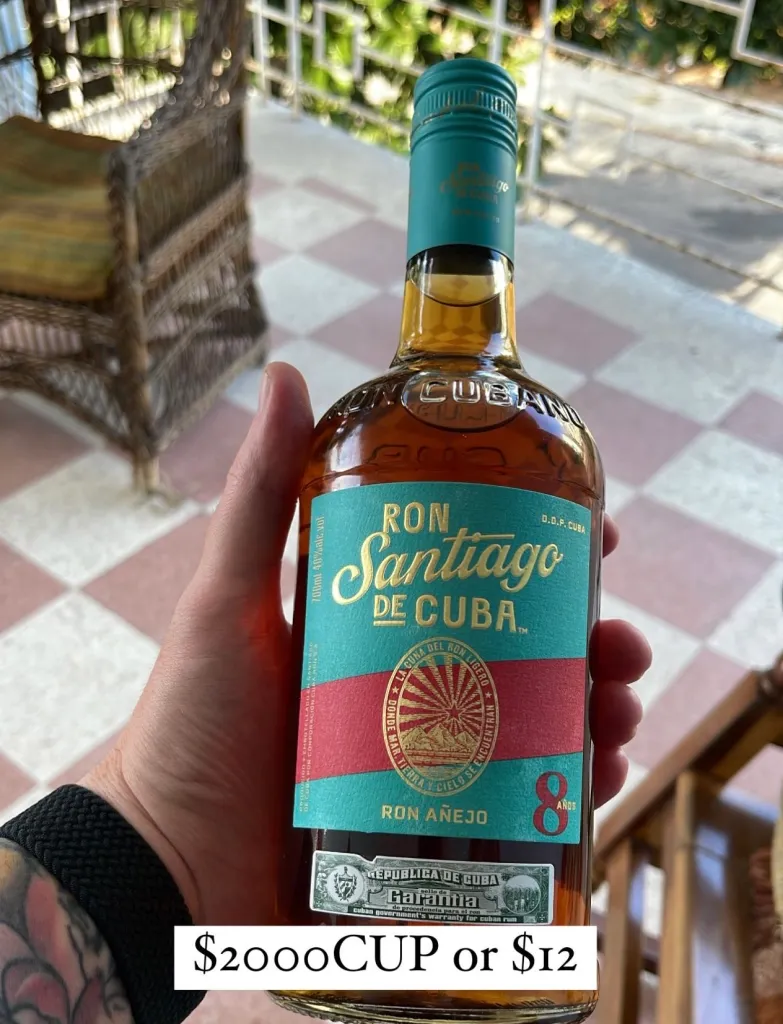
Fake Tickets And Bookings In Cuba
Once again, somebody will approach you on the street. They will be a tourist guide or event promoter. Or more likely they’ll claim to own one of the nicer American cars that Cuba is famed for.
They’ll offer to do you a deal and book you an all day tour in one of the cars. At a ‘special price friend’ that will be five times what it would normally cost. And they will tell you that they’re always booking out. So you should set a day and time with them and pay in advance, or at least leave a deposit.
And if you do pay them or give them that deposit, you can consider the money as good as gone the second you had it over. Whatever token, ticket or note they give you in return, won’t be worth the paper it’s written on. They probably don’t even have a drivers licence. And they wouldn’t own one of the nicer American cars, which are worth a small fortune on the island.
Again, in Cuba, if it’s a random person who has approached you on the street, it’s a scam. If it sounds too good to be true, it’s a scam. It there’s something coming for free or near free in Cuba, it’s definitely a scam.
Travel Tip: The areas around Parque Central, Boulevard San Rafael and Calle Obispo are the prime areas for scammers, street touts and pickpockets. It’s in these three areas that you’ll be most likely to encounter fake ticket scams.
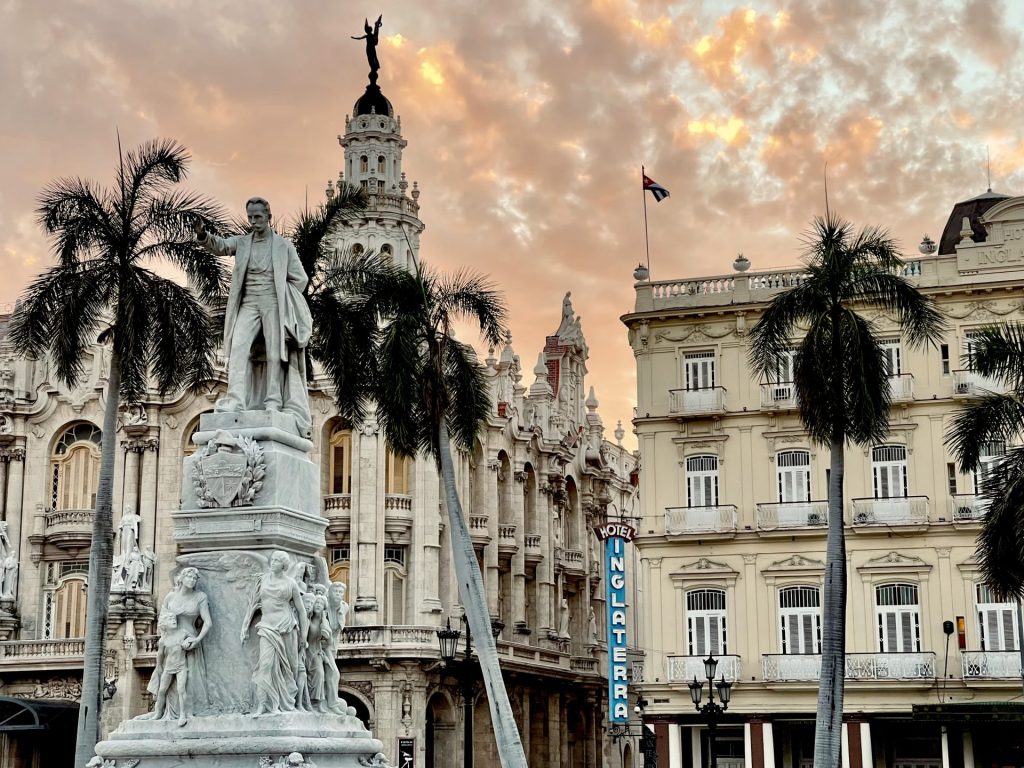
Restaurant And Bar Scams In Cuba
This is one of the more malicious scams in Cuba. And you absolutely should not go to a bar or restaurant, with a random Cuban who has approached you on the street.
Somebody will identify you as a tourist or foreigner and walk up to you on the street. They will offer to tell you where all the good bars and restaurants are, so you can avoid the government run places and tourist traps and instead ‘see real cuban restaurants and bars friend’.
What they actually mean, is that they will take you to the places that they work with and who will inflate the prices on anything you buy, so as to give the person who took you to that establishment a kickback. And not a small kickback, but a sizeable chunk of the large sums of money they will shake you down for.
If you’re silly enough to go with one of these people, you can expect two mojitos in a hole in the wall local bar to come with a bill that is $100USD or more. God help you if you stay for more than one drink with these people and order food, or more drinks, because that trip to a bar or restaurant may come with a bill equivalent to your whole travel budget for Cuba.
Again, in Cuba, if it’s a random person who has approached you on the street, it’s a scam. If it sounds too good to be true, it’s a scam. It there’s something coming for free or near free in Cuba, it’s definitely a scam.
Travel Tip: It’s a legal requirement to have clearly marked prices. If you can’t see the prices in advance of ordering, don’t order. And instead go somewhere else.
Short Changed Scams In Cuba
You can expect to be short changed in Cuba. The person you’re paying will either not have enough money to give you change, for example if you’re in a taxi. Or they will just not give you the correct change in a busy store and you will be halfway down the street, before you realise you got short changed.
To avoid this scam, carry smaller notes and have close to exact change, for any item you’re paying for.
Personally, I never worried too much about this scam as its relatively small change. And if you have exchanged money at the informal black market rate in Cuba, it’s a tiny amount. If you’re exchanging at the official rate, it can definitely add up to a sizable amount of money.
Money Exchange Or Currency Scams
Everyone you meet on the street in Cuba is going to offer to change money with you, or for you, at a better rate than the official exchange rate. Every single one of the street scammers selling fake cigars, fake rum, fake tickets, pimping women, selling drugs and running bar or restaurant scams, is going to mention changing money with them at better rates. Do not do it.
Don’t tell these people what currency you have, where you’re from or what rate you are exchanging money. Completely avoid conversing with them in all instances if you can.
The rates they want to tell you about, will differ and usually keep getting higher and higher as you show no interest. Don’t even indulge in the idea of changing money with a stranger on the street.
They may slip you counterfeit currency, but more likely, they are changing your money using a WhatsApp group and giving you a lot less (10-50% less) than they are selling your dollars and euros.
To get a feel for where the real exchange rate is in Cuba on any given day, check eltoque and try looking at Revolico and searching for ‘efectivo’ (cash). Also, just ask a bartender or waitress when you’re having a drink, as everyone always knows the current exchange rates and will tell you. Just don’t ask random people, who have walked up to you on the street.
Again, in Cuba, if it’s a random person who has approached you on the street, it’s a scam. If it sounds too good to be true, it’s a scam. It there’s something coming for free or near free in Cuba, it’s definitely a scam.
Jineteros & Jineteras | Love Scams In Cuba
There’s a lot said on the internet about Cuba’s Jineteros and Jineteras. They’re effectively just the Cuban equivalent of ‘gold diggers‘. Every country in the world has them, it’s just the Cuban version has its own local term.
While it might be slang for ‘jockey’ or whatever and they may ‘ride’ tourists for money, they aren’t hookers and shouldn’t be confused with hookers. Hookers have pimps and jineteras don’t. But they probably do have local boyfriends and brothers, that you should beware of, if you mistreat them.
Jineteros and Jineteras will try and get cash from tourists, yet they are usually genuinely interested in learning English and learning about foreign cultures and places. They will want you to take them to nice restaurants (and pay), buy them things and give them money, just like any other gold digger the world over.
And while they have the negative aspect that they probably aren’t looking at you as any form of long term relationship prospect, and are probably most interested in your wallet, they do have a positive aspect. That aspect is that they will cause any other street scammer, to think twice and avoid approaching you with a scam.

Support For The Cuban People Scam
You will often encounter people in Cuba claiming they need money and giving you a sob story. Particularly among younger Cubans. And they will use the ‘support for the Cuban people’ slogan, to try to make you feel sorry for them.
Don’t give them money. They’ll just spend it on junk. You’ll just be feeding the beast.
I’ve written an article about the younger generation in Cuba and their attempts to make you feel sorry for them and give them money. You can read my article about ‘support for the Cuban people’ here.
The Strange Effect Cuban’s Have On Other Cubans
There’s a weird aspect to having Cuban friends, in Cuba. And that is every other Cuban see’s you with one of their fellow countrymen and automatically assumes, that the Cuban you are with is already ripping you off. So they avoid you out of respect for that Cuban you’re with, not wanting to disrupt whatever scam they think their countrymen is running on you.
Standing next to a Jinetero or jinetera, will mean you see a lot less of the other scams covered above. But, like anything in Cuba, if it’s a random person who has approached you on the street, it’s a scam. If it sounds too good to be true, it’s a scam. It there’s something coming for free or near free in Cuba, it’s definitely a scam.
Avoid jineteras in Cuba by avoiding the use of Tinder. Because the Cubans on Tinder, are all after tourists and foreigners. And avoid any flashy looking women, particularly if they’re wearing excessive amounts of fake Gucci.
Cuban Financial Scams (Visa & Investment)
Ever since the US embassy reopened in January 2023, there are new financial scams being developed and perfected in Cuba. All of them play on a foreigners sympathies for ‘poor struggling‘ Cubans.
In essence, somebody you meet will try to befriend you and they will tell you that they can now apply for a visa to the United States. But that they need a sponsor and capital. Which of course, they will promise to pay back as soon as they’re in the US and employed.
Now, just like paying a Cuban in advance, you should never loan money to a Cuban or offer to sponsor them in anything. It’s like giving a gold digger a limitless credit card.
The second you go guarantor, or loan a Cuban money, you can consider the money gone. The Cuban will never pay you back. And the Cuban likely won’t even leave Cuba. They’ll just blow the money on junk.
The amounts of money that they’ll ask you to loan them, or to go guarantor for, will range from $10k USD to $50k USD. Don’t do it.
I should also add, that a slight deviation on this scam is the housing scam. They’ll tell you because everyone is leaving Cuba, that there’s cheap houses and they want to buy one to rent out with some fabulously unbelievable return per month.
Cuba is not investable. If you pay for a property, it will be in the Cuban’s name. And you’ll never see ownership of that property, or that money ever again. Never loan money to a Cuban.
Baby Needs Scam
The oldest version of this scam, is the claim that their baby needs milk formula. The scammer gets you to buy them baby formula, from a store the scammer has partnered with. After you pay an exorbitant price for the baby formula, the scammer then returns it and splits the profit with the shopkeeper.
An alternate version of this scam, is the claim that their baby needs medicine. And they straight out ask you for money. Thereby avoiding the need to partner with a store.
The last time I had someone try this scam on me, the scammer was so drunk they could barely stand up. And this shouldn’t surprise you. As a lot of these scammers either don’t have kids, or their ‘babies’ are grown adults, who are also out scamming people.
Cuban scams most often play on your sympathies and your preconceived ideas about the ‘struggling’ Cuban people. The second someone tries to give you a sad story, or mentions a baby, cut them off mid sentence and just walk away.
Google Maps Scams
The maps scams can be broken down into 2 broad categories. There’s first and foremost the fake Google reviews and misinformation added to location reviews. And then there’s relocating sites of tourist interest to coincide with the scammers home or business address.
In the first category, you need to be aware that most of the reviews you see online for establishments in Cuba, are fake. Businesses will have their friends, relatives and staff members fabricate fake five star reviews. They’ll also use any and all means at their disposal to remove anything that contradicts their own misinformation.
A prime example of misinformation on maps is the Necrópolis Cristóbal Colón Cemetery in Havana. It’s free to enter and you don’t need a guide. But if you put that in a review, or if your review gets more likes than the scammers, they will do everything in their power to have it removed. Including claiming your original images are theirs.
The second category of maps scams, the relocating of significant sites of tourist interest, is far more annoying. Instead of moving their business closer to the site that they’re trying to sell tours for, they’ll just move the location of the site on the maps application, to coincide with their business address.
With the second variant, you’ll be constantly lost. But don’t worry, the scammer will kindly offer to sell you an overpriced tour, so you can find the site. Instead of paying the scammer, I would suggest that you unkindly tell them to go and f*** themselves.
Just see the map below. Plaza de la Revolution is a top tourist location. And it’s been moved so many times, that it’s now the entirety of Havana. If you need to find an historic site in Havana, use my article here. I’ve pinned the correct maps locations. Or better yet, just book a reliable English speaking tour.
Entry Fee Scams
The entry fee scam often coincides with map scams. You’ll find that when you get to a location, there’ll be a bunch of touts standing around telling you that you need to hire them, or pay an entry fee, to visit a site. Again, the Necrópolis Cristóbal Colón Cemetery in Havana is a prime example.
In the case of Necrópolis Cristóbal Colón Cemetery in Havana, just walk around the scammers and ignore them. Or enter via the rear entrance, where there are no scammers and touts. Because all the buses and tour companies primarily park at the main gate, all the scammers congregate there. And none of them cover the rear entrance.
Police Bribe Scam
This scam is often associated with dating scams. You’ll be on a first date and some friend or relative of your date, will try to tell you that the police have seen you together and are threatening to arrest your Cuban date. They will then tell you, that they need a large amount of money to ‘bribe’ the police.
Now, dating a Cuban is legal in Cuba. It has been for years now. If somebody tries this scam, call their bluff. Tell them to send the police over, and together with the police, you’ll go to your embassy to have the embassy deal with the police.
If you call their bluff, the scammers will rapidly fade into the background and disappear. Now, police do take bribes in Cuba. But they don’t forcefully demand bribes from tourists. And the price is about one can of local beer, in local Cuban pesos (200-250 CUP).
Where Can I Get More Information About Cuba?
I’ve made my Cuba travel guide available on this website. And I recommend you read it, before traveling to Cuba. It will help you navigate Cuba and Cuban society.
My ultimate guide to Cuba will save you a lot of time and a significant amount of money on your trip to Cuba. Read the most up to date guide to traveling in Cuba.
And for those of you interested in other tourist scams operating throughout South and Central America, I’ve previously covered the tourist scams in Argentina and Colombia.
